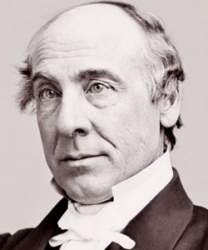Record Data
Transcription
NEW YORK, October 31, 1861.
SIR: With your permission I visited the prisoners of war and of State at Governor's Island on Monday last.
I should have extended my visit the next day to Fort Lafayette and Ellis Island, where smaller portions were placed, had I not learned that they were all to be removed the next day to Boston harbor. I suppose, however, that none of the prisoners could be badly off if those crowded in the casemates of Castle William were not, and therefore a report of the condition in which I found them may properly serve as a sufficient reply to all the complaints which have appeared in the New York papers.
No doubt the circumstances under which these men were brought to Governor's Island made their condition for a week or two very trying, and almost inhuman. Ill clothed, already sick from the voyage and previous exposure, they were suddenly precipitated upon a post not prepared to receive them, when there was neither adequate room, clothing, nor medical force; but these unavoidable deficiencies were supplied with all the expedition possible. All alacrity was shown, it appears, by the commandant and his surgeon and other officers to meet the case. In a very short time bedding, blankets, sufficient food, and suitable medical attention were furnished to all. As I saw them they were in a better condition in all respects than half our own men in the field — not so crowded as most soldiers in tent, with as abundant food, as good blankets, and more devoted medical attention. There was nothing to complain of, except the unavoidable fact that casemates - although here quite roomy — furnish very poor ventilation, and are in no case comfortable quarters.
The men complained of nothing, (although I give them ample opportunities to do so,) except the loss of liberty. They spoke kindly of their physicians, and the officers in command. The climate seemed their chief objection to this region. It went sore with them to be sent still further north. They wanted to stay where they had made friends — knew their prison and their keepers, and where they were nearer to sympathizers and to home.
The casemates were singularly clean. I purposely went unannounced, and found the floors bright and sweet. Every man had his own bed and adequate blankets. In addition to the Government supplies, the State of North Carolina had been permitted to send some comforts to the prisoners, and disinterested beneficence in New York had done something more. I could really find no room to add any thing from the stores of the Sanitary Commission.
The hospitals were humanely and tenderly administered by Surgeon Swain and Assistant Surgeon Peters. The sick men looked perfectly comfortable in the regular hospital, and in the temporary hospitals as comfortable as casemates permitted. Medicines of the best kinds, in unlimited quantities, and necessary stimulants in abundance, were supplied to the sick. Several very desperate cases of typhoid had been saved by the assiduity of the physicians. The low spirits of all prisoners are, of course, highly unfavorable to convalescence, and doubtless the sick list and the bill of mortality (seventeen had died) were both larger than they would have been had not home sickness very much prevailed.
The men were usually reluctant either to wash or to exercise. They had to be driven to both. Pains were taken to compel them to be in the open air several hours each day. They were not confined within narrow bounds, but had many acres for a play-ground.
The surgeon told me he had seen only one tooth-brush in use among the rank and file. They were evidently careless in personal habits, dirty, and sluggish. The officers were perfectly comfortable for prisoners, and complained of nothing. I saw on the whole abundant evidence of the unreasonableness of the complaints made of the treatment of these men.
It would be a source of great consolation to believe that our prisoners were treated by the rebels half as well.
Very respectfully, yours,
HENRY W. BELLOWS,
President of the U. S. Sanitary Commission.
Hon. W. H. SEWARD,
Secretary of State.



